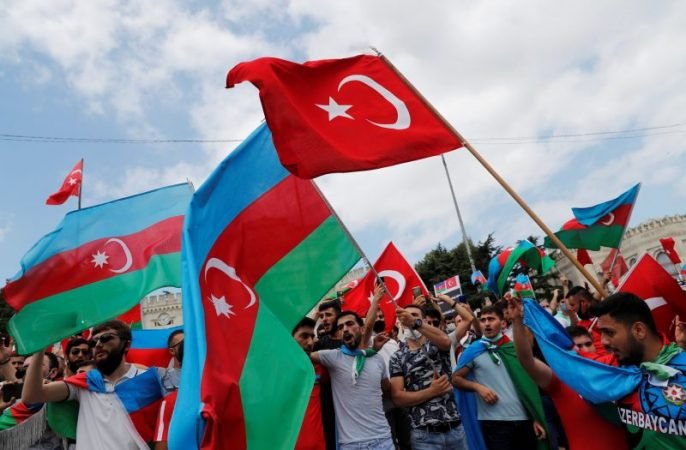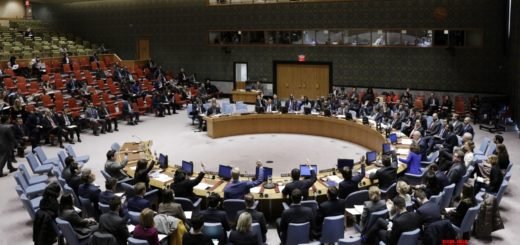Role of Turkey and Russia in Nagorno Karabakh conflict and implications for India

Clashes have erupted in Armenia and Azerbaijan over two and a half decades-long conflict in Nagorno Karabakh in late September. Hundreds have been killed and thousands displaced in recent fighting since Baku and Yerevan began missile strikes against each other. The disputed territory situated in Azerbaijan, home to a majority of ethnic Armenians. Turkey and Russia are standing face to face, triggering alteration of local conflict into a regional one. Turkey was the first country to recognize Azerbaijan’s independence and perceived as a smaller brother. Whereas, in 1992 when full-fledged war broke out in Nagorno Karabakh, Armenian policy inclined towards Russia and immediately joined the Commonwealth of Independent States and Collective Security Treaty Organization.

During the last few years of USSR, Moscow was in favour of Azerbaijan over the issue of Nagorno Karabakh. In 1992, Elchibey became president of Azerbaijan and foreign policy took pro-Turkish and pro-Western stand. In 1993-94, various treaties were signed between Moscow and Yerevan. These treaties also gave military access to the Moscow and soon Armenian and Russian troops engaged into joint patrolling across the borders of Iran and Turkey. Also, Russian 102 military unit is stationed in Yerevan gives leverage to Russia in Trans-Caucasus. Azerbaijan in past has clearly expressed dissatisfaction over Moscow’s inclination towards Armenia in Nagorno Karabakh conflict.
After the disintegration of the Soviet Union, Turkey’s ambition of creating a Pan-Turkic community from Central Asia to Eastern Europe strengthened. Turkey also tried to fill the vacuum in the Caucasus by forming a military alliance with Azerbaijan and Georgia in the NATO framework. Trans-Caucasian Islamic ethnic nationalities constitute 10-15% of Turkey’s population and play a vital role in foreign policy-related decisions of the Ankara. Turkey was one of the first few countries to recognize the independence of Armenia. Discussion over cross-border trade and construction of the highway between Turkey and Armenia was improving well in the post-independence period. But Turkey set a condition which demands Armenia to abandon its territorial claim in the Nagorno Karabakh. Armenia wanted bilateral relations without conditions hence negotiations between Yerevan and Ankara could not move further. In 1993, Ankara closed its border with Armenia and imposed an official ban on the trade with Yerevan. Twenty-five years later, the situation is still unaltered. Turkey’s lurch into the Azerbaijan-Armenia conflict, including the use of Syrian mercenaries that serve as its proxy army, has put some powerful NATO members in the odd position of coordinating its message with Moscow, which has long sided with Armenia.1
OSCE Minsk process a Euro-Atlantic framework which involves Russia and Turkey is actively organising negotiation dialogues since 1990. However, Azerbaijani diaspora is not sure about the course of the dialogue and believes OSCE Minsk has failed to achieve concrete results. Turkey’s unequivocal support for, and military presence in, Azerbaijan has been met with a relatively passive reaction from Russia, manifested in the form of a call on both sides to restrain from escalating the war – a position that puts the perception that Russia is Armenia’s strategic ally in doubt.2 European countries and inter-governmental organisation amid Covid-19 has shifted their focus on public health related concerns allowing a Turkey and Russia to influence the peace process of Nagorno Karabakh.
Russian President Vladimir Putin called for a ceasefire between Armenian and Azerbaijani forces. Kremlin has also mentioned, Putin’s dialogue over phone calls with the Armenian prime minister Nikol Pashinyan and the Azerbaijani president Ilham Aliyev. The Kremlin said Putin initiated a ceasefire to collect the bodies of martyred soldiers and exchange of prisoners. Russia has already taken an active part in military conflicts in Syria, Libya and Ukraine and might not be very much interested in opening another front and hence pushing Yerevan and Baku for peace talks. However, this might be the reason Turkey is taking interest in the ongoing Nagorno Karabakh conflict. But if the conflict overrun Yerevan, Moscow will intervene by taking side.

Implications for India
India does not have a specific policy for the Trans-Caucasus region. Armenia is the only country in the region India has diplomatically engaged. India and Armenia’s treaty on friendship and cooperation signed in December 1995, limit India to take any military stand against Yerevan. Armenia also supported India on the issue of Kashmir whereas Azerbaijan has taken a side with Pakistan and continuously endorsing and pushing its separatist narrative.
Economic relations between New Delhi and Yerevan are still not very promising on the other hand ONGC and GAIL exploring business opportunities with the Baku. Also, Azerbaijan is an important strategic partner for India’s ambitious International North-South Transport Corridor (INSTC) project. For New Delhi improved relations with Baku will open up not just opportunities in the energy sector but also connectivity with Turkey.
After the independence during the initial years of Nagorno Karabakh conflict, India had supported the territorial integrity of Azerbaijan. However, from last few years India is openly approaching for a peace between Baku and Yerevan. Azerbaijan has supported the violation of Indian territory by Pakistan in Kashmir hence, it would be fair if India took a hard stand against Baku on the issue of Nagorno Karabakh. But Indian diaspora is still emphasizing a peaceful resolution of the conflict rather than taking aside. India would not support self-determination right of Nagorno Karabakh in near future as it can have international repercussion for New Delhi over Kashmir issue. But so far India has managed to balance situation while hoping for a peace in the Trans Caucasus region.
NOTES
- Robbie Gramer and Jack Detsch, Turkey’s Caucasus Adventure Risks Another Crisis in NATO, Foreign Policy, October 6, 2020.
- Asbed Kotchikian, Nagorno-Karabakh conflict precipitates a new regional order, Aljazeera, October 8,2020.



















